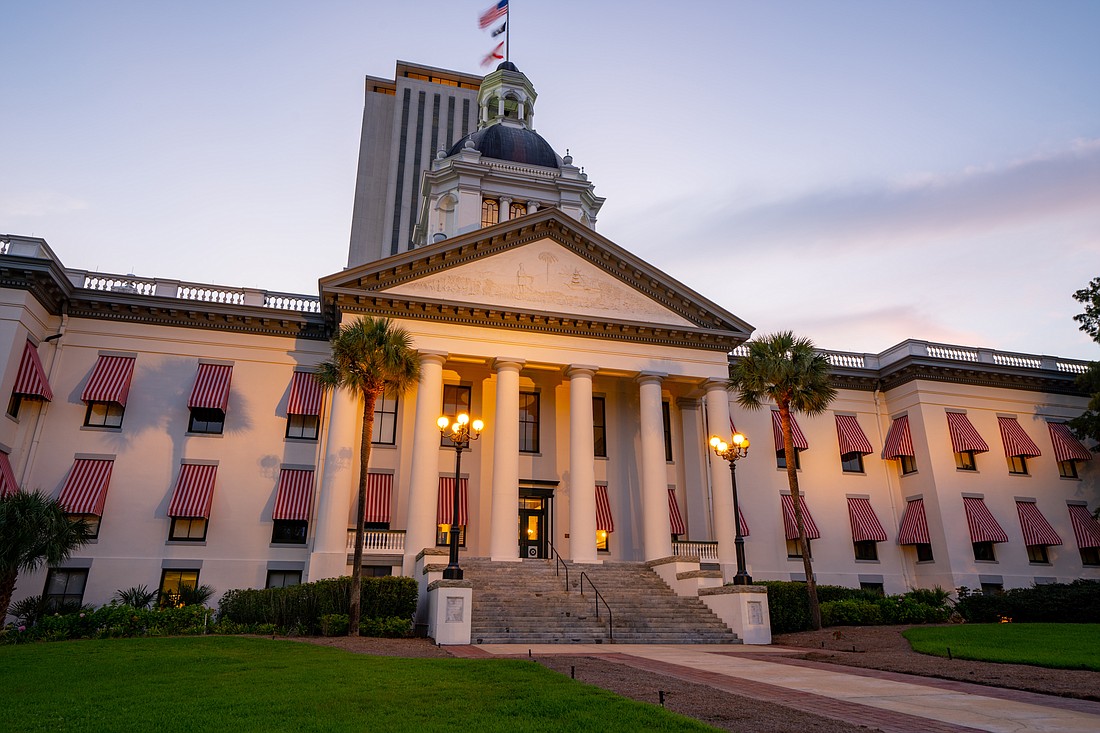The Florida Bankers Association is hoping to reach a settlement on an issue that’s pitted the state’s bankers versus lawyers over how much interest is paid on trust accounts, money that goes toward paying for legal aid programs.
The FBA's senior vice president of government relations, Kenneth Pratt, says work is underway to “solve the problem” without the need for lawmakers after two pieces of legislation capping how much interest banks had to pay died in committees during the legislative session that ended last month.
“We would very much be in favor of working with the Florida Bar and other stakeholders to try and come to a compromise,” Pratt says in an interview. “Those discussions have continued to happen, and we would very much like to continue those discussions. We think that would be that would be in everyone's favor."
The issue stems from a rule the Florida Supreme Court passed last year that changed the minimum banks must pay on Interest on Trust Accounts (IOTA) and tied the rate to an indexed rate of between 3.25% and 4.99%.
Bankers argue the rule change cuts into their bottom lines by forcing them to pay more for accounts with a heavy transaction load. The Florida Bar, which wrote the new rule, countered that it gives banks an incentive to bring in more business by offering higher yields.
The Florida Bar's president, Scott Westheimer, says in a email that the organization remain supportive of the IOTA rule approved by the Florida Supreme Court last year.
"The new rule has worked as designed and is enhancing access to justice for Florida citizens who cannot afford legal representation."
According to Funding Florida Legal Aid (formerly The Florida Bar Foundation), the state Supreme Court requires that all nominal or short-term funds belonging to clients or third persons be deposited into interest-bearing checking accounts. But the interest earned cannot be deposited back into the accounts. Instead, the funds go to FFLA to be distributed, in large part, to provide legal assistance for the poor.
The IOTA money is earmarked for Florida residents who are at or below 125% of the poverty level.
The court implemented the program in 1981.
According to FFLA, it collected $45.5 million from the IOTA program during fiscal year 2022-2023 and in December the organization’s board approved $33.8 million in IOTA funds for 35 legal aid organizations as well as monies for other programs.
The FBA insists bankers are not opposed to the program or where the funds go. The issue is that the higher rate cuts into a bank’s profits and may force many to pull out of the program.
“We believe what we're doing, trying to change the program from the current status," Pratt says, "is an effort to save this program because, quite frankly, what we don't want to see is a multitude of banks decide that they can no longer afford to be in this this line of business.”
The bankers’ association tried to overturn the new rule during the past legislative session by supporting a pair of bills that would have set the interest rate banks pay on IOTA program accounts on a quarterly basis, capping what banks have to pay at 2.55%. Both — House Bill 1253 and Senate Bill 1336 — never came to fruition.
Despite that, the legislation was important, Pratt says, “because it started a conversation about how this program should work and the best way forward.”
If a compromise can’t be worked out the bankers have other options other than the reintroducing the legislation in 2025.
The Supreme Court has taken up a challenge to the rule and asked the Florida Bar to file a new report on the implementation of the new rule and the impact of the new interest rate.
“We're planning on responding,” says Pratt. “And again, planning on pointing out to the court that it's important to have an interest rate that still allows a financial institution to be profitable, and still help Florida legal aid.”
This story has been updated to include a statement from The Florida Bar.







